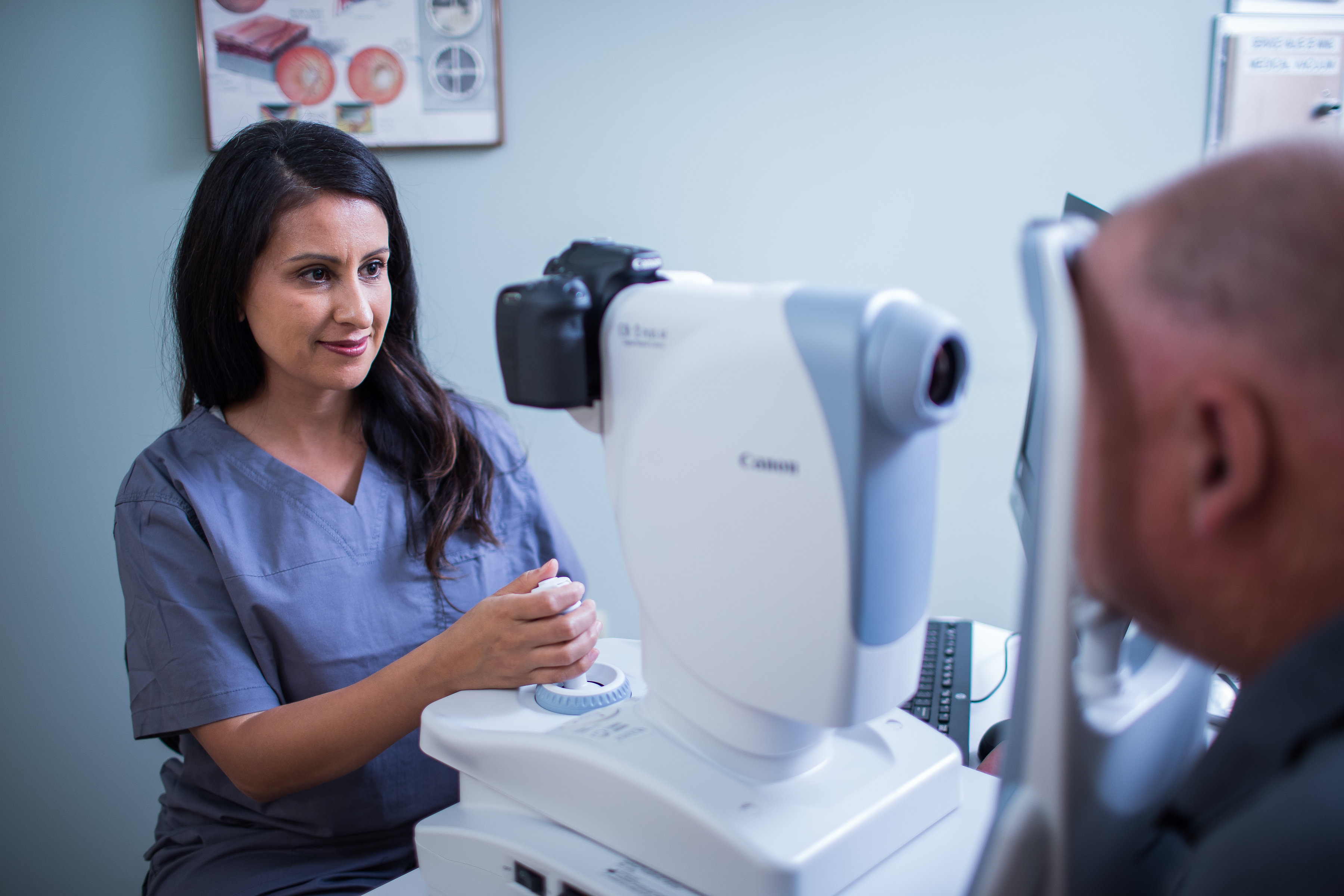Pediatrics in Andalusia: Compassionate Care for Expanding Families
Pediatrics in Andalusia: Compassionate Care for Expanding Families
Blog Article
Is Refractive Surgical Procedure Right for You? Factors to Consider for Better Eyecare
In the world of eye treatment, the choice to undergo refractive surgery is a substantial one that demands thoughtful factor to consider. From the intricacies of one's eye health to the intricacies of daily routines and personal assumptions, each element holds value in the wider landscape of refractive surgical treatment candidateship.
Eye Health And Wellness Examination
When considering refractive surgery, a detailed eye health and wellness assessment is important to examine the suitability of the procedure for every individual. eye doctors in andalusia. This assessment entails a series of tests and exams conducted by an eye treatment professional to establish the overall wellness of the eyes, the presence of any kind of hidden problems, and the stability of the refractive mistake
During the analysis, different factors are thought about, such as the individual's case history, present eye prescription, corneal thickness, student size, and tear movie high quality. These assessments help to determine any contraindications to refractive surgical treatment, such as corneal abnormalities, cataracts, or untreated eye infections. In addition, the examination assists to handle individual assumptions concerning the potential end results of the surgical treatment based upon their one-of-a-kind eye qualities.
Inevitably, the eye health analysis is vital in making certain the safety and security and efficiency of refractive surgical procedure, as it provides beneficial understandings right into the individual's eye wellness status and assists determine one of the most appropriate treatment choices for attaining optimum aesthetic results. (cardiologist andalusia)
Way Of Life Analysis
A detailed way of living analysis is indispensable in identifying the suitability of refractive surgical treatment for an individual's aesthetic adjustment demands. Way of life variables such as profession, hobbies, and day-to-day activities play an essential role in the decision-making procedure regarding refractive surgical procedure. People with occupations that include a high level of physical activity or exposure to ecological elements might have various aesthetic needs compared to those with sedentary workdesk tasks. Recognizing how a person's lifestyle may impact their vision post-surgery is essential for taking care of assumptions and ensuring ideal end results.
Moreover, way of life routines such as sports involvement, outdoor tasks, and even skincare regimens can influence the recovery process and total success of refractive surgical treatment. People who engage in get in touch with sports may require to take extra precautions to secure their eyes throughout the recuperation duration. Furthermore, people with extensive sun direct exposure might call for added post-operative like prevent difficulties. By conducting a comprehensive way of life evaluation, eye treatment specialists can tailor their suggestions and treatment strategies to meet the distinct demands of each patient, eventually causing enhanced visual results and contentment.
Assumption Positioning

People need to comprehend that while several individuals attain 20/20 vision or far better complying with refractive surgical procedure, some might still call for glasses for certain tasks like reading or driving at night. Handling these expectations aids prevent frustration and discontentment post-surgery, leading to an extra positive general experience for the patient.
Threat Analysis

Factors that might boost the risk of difficulties include age, particular medical problems like autoimmune illness, unstable vision prescription, thin corneas, and impractical patient assumptions. Furthermore, selecting a knowledgeable and experienced surgeon, adhering to pre and post-operative care guidelines carefully, and revealing any kind of pertinent clinical background can assist mitigate risks.
To decrease the probability of problems, ophthalmologists why not try this out perform thorough pre-operative assessments to identify any contraindications to surgery. They additionally review the possible risks and benefits with individuals during the consultation procedure. By participating in open interaction and shared decision-making, both the patient and the eye doctor can collaborate to determine if refractive surgical procedure is the ideal selection based on specific risk accounts and preferred results.
Examination Value
Considering the critical duty of notified decision-making in analyzing dangers and prospective complications in refractive surgical procedure, the assessment procedure holds significant importance in guiding patients in the direction of ideal end results. Throughout the appointment, the eye doctor assesses the individual's eye health, refractive errors, and total suitability for surgical procedure. This first analysis is important in establishing one of the most ideal treatment for every person, taking right into account variables such as corneal density, student size, and existing eye conditions.
Additionally, the consultation acts as a chance for individuals to discuss their assumptions, worries, and any questions they might have pertaining to the surgical treatment. Clear communication between the client and the specialist is necessary to guarantee sensible assumptions and a complete understanding of the prospective risks and advantages involved.
Furthermore, the appointment allows the cosmetic his explanation surgeon to explain the different surgical alternatives offered, their corresponding results, and the post-operative treatment required. This detailed discussion equips patients to make well-informed decisions concerning their eye care, leading to better fulfillment and end results post-surgery.
Verdict
Finally, individuals taking into consideration refractive surgical treatment should undergo an extensive eye health and wellness assessment, examine their way of living routines, align their assumptions with possible outcomes, evaluate the associated risks, and focus on appointments with eye care specialists. These factors play a crucial function in determining the suitability of refractive surgical treatment for every individual, making sure optimal end results and satisfaction with the procedure.
Individuals taking into consideration refractive surgery usually have high expectations relating to the results, expecting perfect vision without the requirement for glasses or contact lenses. While refractive surgical procedure can substantially enhance vision and lower dependence on aesthetic help, it is vital for patients to comprehend that results might vary based on private aspects such as the degree of refractive error, corneal thickness, and total eye health and wellness.
By engaging in open communication and shared decision-making, both the ophthalmologist and the client can function together to determine if refractive surgical procedure is the appropriate choice based on individual danger profiles and wanted results.
Considering the vital role of educated decision-making in analyzing threats and prospective complications in refractive surgical treatment, the consultation process holds considerable value in guiding patients towards ideal end results. Throughout the assessment, the ophthalmologist evaluates the client's eye health, refractive errors, and general viability for surgery.
Report this page